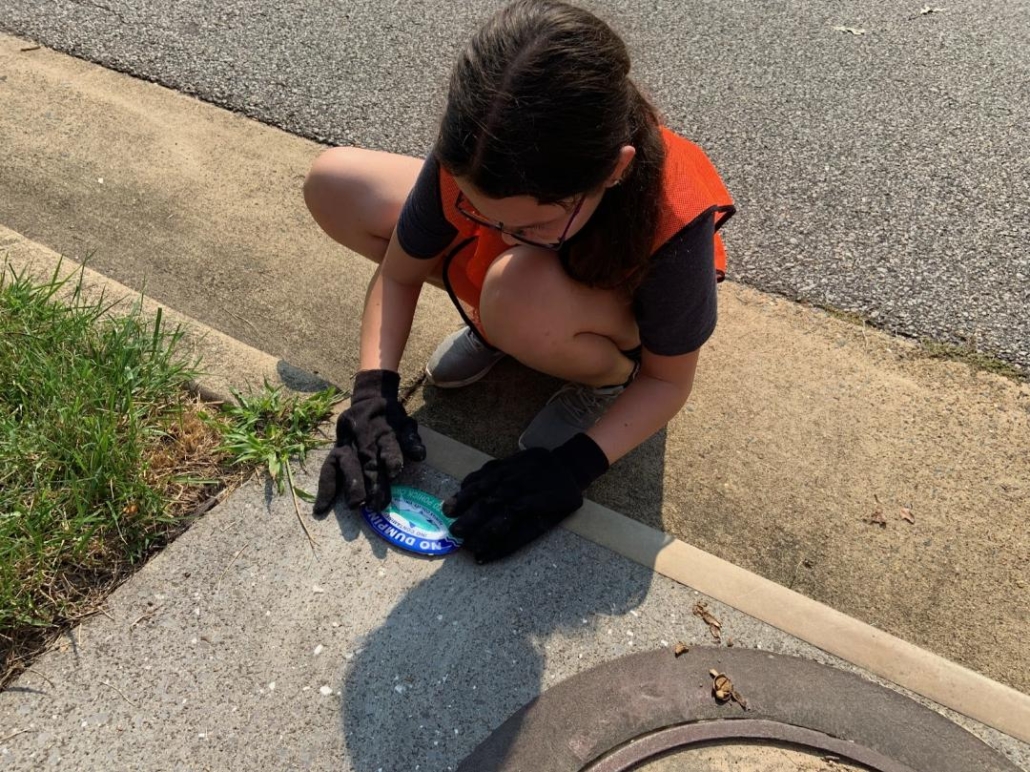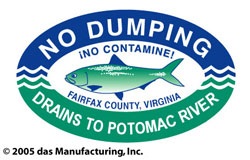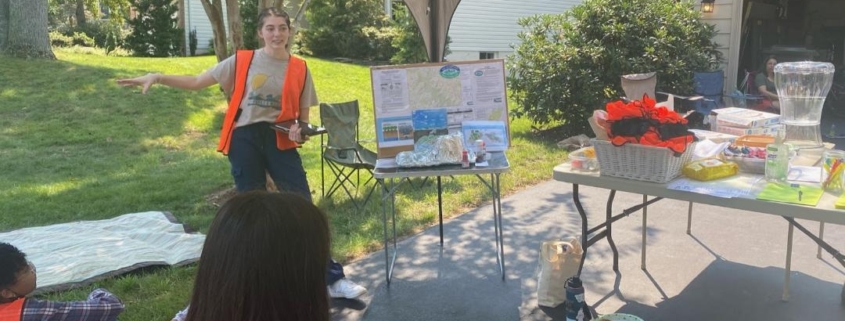Nonpoint Source Pollution & Labeling Stormwater Drains, a Gold Award Project
Article by FMN & Gold Award Girl Scout Mackenzie Nordai
Photos courtesy of Mackenzie Nordai

My Gold Award* aimed to address the issue of nonpoint source pollution’s effect on Pohick Creek Watershed which includes Hidden Pond Park in Springfield, Virginia. As the leader of the project, I led groups of volunteers through three communities adjacent to this watershed and labeled stormwater drains to alert people about where these drains lead. I also communicated awareness to the communities around Hidden Pond through a community newsletter, Fairfax Master Naturalist social media, and postings on bulletin boards at Hidden Pond Nature Center about the negative effects that nonpoint source pollution has on the environment. Nonpoint source pollution has the largest impact on our water quality, because it comes from many sources like our suburban neighborhoods. Some examples include fertilizers, pesticides, dog waste, car soap, oil, grease, antifreeze, paints, sediment, and excess salt from salting the roads. When it rains, the runoff from our neighborhoods enter our stormwater drains dispersing different pollutants into our ponds, lakes, streams, and rivers leading to the Chesapeake Bay and eventually into the Atlantic Ocean, which can hurt the ecosystem and marine life.
Did you know that a single six pack plastic ring can last 400 years before it finally can decompose? And paints, oils, and grease can pollute the waters through dissipation. These pollutants along with various others can impact different wildlife through suffocation and by changing the environment’s carrying capacity to a level that the wildlife can no longer sustain. Amphibians, for example, have thinner skin than most animals and are affected by water and air pollutants, so imagine what a drop of oil or grease is going to do to a whole population of organisms.
I selected my issue, because I care about the environment, plan to pursue a related field in college, and have already begun educating others on this topic during my coursework to become a certified Fairfax Master Naturalist. While doing so I was inspired to spread the knowledge about how to prevent nonpoint source pollution and the impacts that it has on our watersheds. As I delved into research, I felt a passion in understanding the impacts of pollution and I felt driven about educating others on what society can do to help prevent it.

In conclusion, there are ways that we all can help our environment by preventing nonpoint source pollution. First, you can contact the Northern Virginia Soil and Water Conservation District (NVSWCD) and label the stormwater drains in your neighborhood to increase awareness. Next, you could work on establishing native plants in your landscaping and minimize fertilizers and pesticides, or by purchasing household detergents and cleaners that are low in phosphorus. Also, you can dispose of used oil, antifreeze, paints and other household chemicals properly. Lastly, you can properly dispose of dog waste and litter. All of these actions help to protect the environment and our local watershed.
* The Girl Scout Gold Award is the highest award a Girl Scout Senior or Ambassador can earn. A Gold Award Take Action Project has national and/or global links, is sustainable, takes approximately 80 hours and addresses an issue the Girl Scout cares about.


